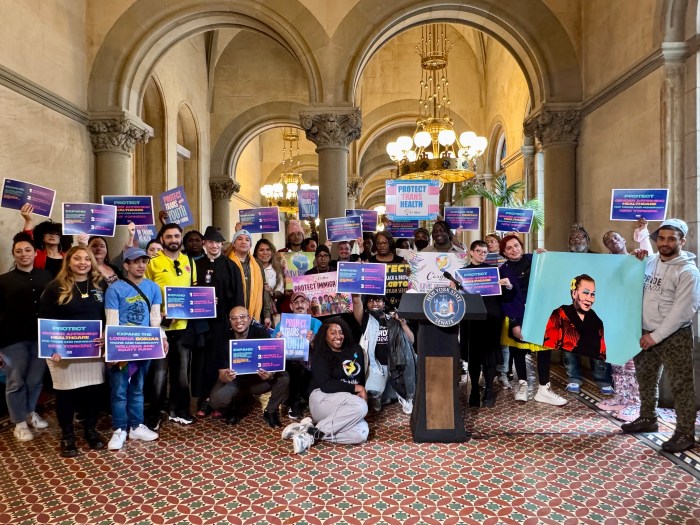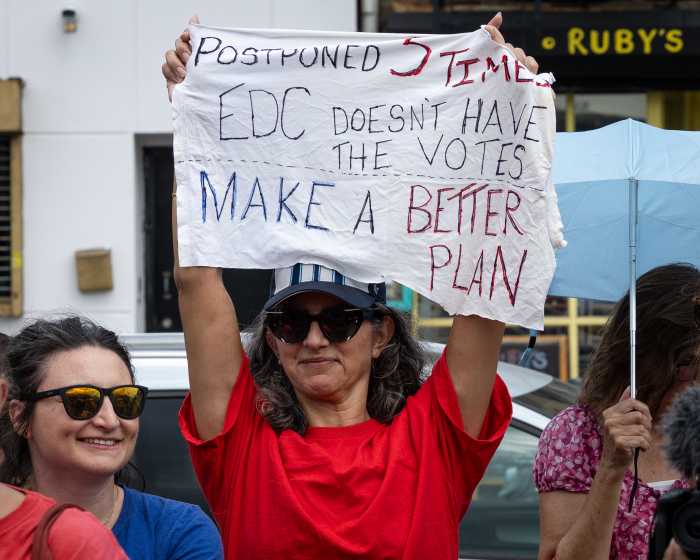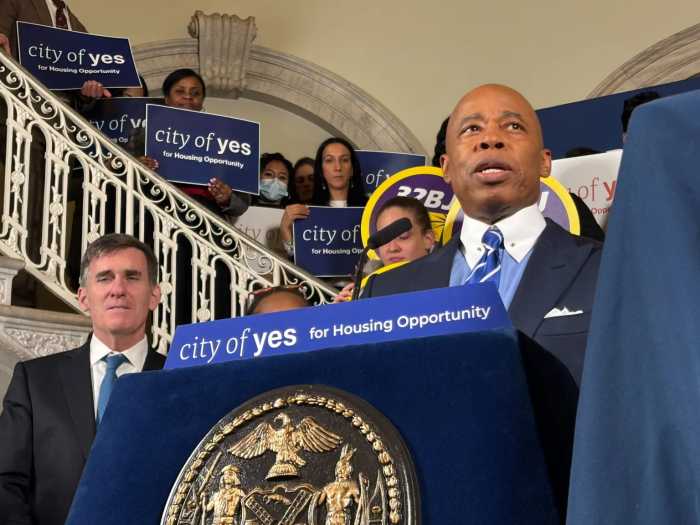BY PAUL SCHINDLER | New York City Comptroller William C. Thompson, Jr., is prepared to take on the Securities and Exchange Commission (SEC) over the federal regulatory agency's decision to offer cover to a Houston company fighting to scuttle a shareholder effort to implement a corporate sexual orientation and gender identity nondiscrimination policy.
Shareholders, including the five city pension funds overseen by Thompson's office, are seeking to have the resolution considered at the annual meeting of Apache Corporation, an oil and gas exploration and production company, in May. The city pension funds currently hold more than 930,000 shares of Apache valued in excess of $100 million.
Comptroller takes on SEC ruling nixing anti-bias shareholder resolution.
In January, Apache wrote to the SEC asking for a No-Action Letter advising the company that it would not face consequences for refusing to put the resolution before shareholders. The company argued that the resolution interfered with the “ordinary business” of the company, a standard exclusion that bars shareholders from stepping in to “micro-manage” a corporation's day-to-day affairs.
On March 5, an SEC staffer from its Office of Chief Counsel responded to Apache that “there appears to be some basis for your view that the company may exclude the proposal… Accordingly, we will not recommend enforcement action to the Commission if Apache omits the proposal from its proxy materials” for its annual shareholder meeting.
Noting his office's success in recent years in using shareholder resolutions to move companies to adopt nondiscrimination policies, Thompson, in a written statement, said, “The SEC's decision flies in the face of all the progress that has been achieved.”
The comptroller's release said Thompson's office is “exploring legal options such as appealing the SEC Staff decision to the full Commission or filing a lawsuit against Apache.”
Efforts by the New York City comptroller's office to advance, first, sexual orientation non-discrimination policies in corporations and, more recently, protections for transgendered workers, with language regarding gender identity and expression, date back more than 15 years.
City pension funds first went after the Cracker Barrel restaurant chain, based in Nashville, which had an affirmative policy of firing gay employees, going so far as to acknowledge sexual orientation as the cause of termination on unemployment insurance forms. The Cracker Barrel resolution was similar to many earlier shareholder efforts regarding racial, religious, and gender nondiscrimination policies that passed muster with the SEC, but the company fought back using the ordinary business argument.
According to an official familiar with that fight, which came at the end of President George H.W. Bush's presidency, the SEC responded by clamping down on all such non-discrimination resolutions, whether regarding sexual orientation or any other category. Shareholder activists were hopeful that the new Democratic administration of Bill Clinton would usher in an era of responsiveness to their efforts, but in fact in took much of his two terms in office to move the SEC bureaucracy to stop issuing recalcitrant companies No-Action Letters.
According to Thompson's office, its shareholder resolution efforts have led 52 companies to add sexual orientation and/or gender identity to their nondiscrimination policies. This year, 24 shareholder resolutions were filed with companies in which the city pension funds hold nearly 30 million shares with a market value of roughly $2.2 billion. To date, seven of those targets have agreed to amend their policies.
As the shareholder resolution movement has matured, it has formalized its demands, first to include gender identity in addition to sexual orientation, and also to spell out an itemized list of principles developed by the Equality Project, a non-profit advocacy group. The last four principles on that list – barring the company from using negative stereotypes and discrimination in its advertising and sale of products and also barring any policy forbidding charitable contributions to organizations based on sexual orientation – form the heart of Apache's argument.
The company's January letter to the SEC argued in detail that advertising, marketing, sales, and charitable giving are all integral to Apache's ordinary business operations.
In a February 1 response to the SEC, the comptroller's office first reviewed the 1998 SEC release that laid out why nondiscrimination resolutions “transcend” the “ordinary business” exclusion and went on to argue that a “word-for-word identical” shareholder proposal was put forward last year regarding Armor Holdings, Inc., a Jacksonville, Florida-based manufacturer of military, law enforcement, and personnel security equipment. The SEC rejected Armor's request for a No-Action Letter.
Apache responded, in essence, that Armor had not argued its position in sufficient detail.
As Thompson's office considers next steps, there appear to be three options. One is to appeal to the full SEC, which may not be fruitful if in fact the March 5 No-Action Letter to Apache reflects the political will of the Bush administration to roll back the advances achieved late in the Clinton years.
A second option is to sue the SEC, but that route as well is not promising. Before the SEC changed its policy in 1998, the comptroller's office had pursued legal action, a course that resulted in an appellate ruling adverse to the shareholder resolution movement. At this point, the only further step to take would be an appeal to the Supreme Court, also considered unfriendly turf.
Finally, Thompson's office could press a suit against Apache, seeking to have it ordered to bring the nondiscrimination issue before its shareholders, an option mentioned in the comptroller's press release.
As of press time, Thompson's office had not announced its specific plan of action. Apache declined to comment on potential litigation.

































